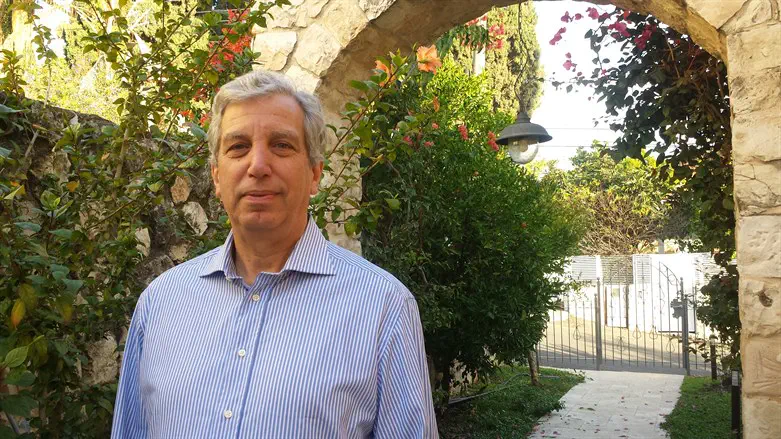
We were given a powerful reminder of the truth of the aphorism that “War is Hell,” when the crushing news came in with last Shabbat that an IDF soldier or soldiers had inadvertently shot and killed three hostages.
As horrifying as the fact was, it was worsened with the ensuing news that at least one of the hostages was bare chested and waving a white cloth of some sort. Plus, we have were shown a sheet with SOS in English and Save Us in Hebrew, scrawled in red, attached to the building that presumably the hostages were holed up in and from which they ran out.
The IDF Chief of Staff appropriately took full responsibility for the incident, and of course it is being investigated closely. How could we not take responsibility if one or more of our soldiers pulled the trigger or triggers that ended up killing three of those who we have been so intent on finding and rescuing?
But as any Sherlock Holmes buff knows, the superficial story is never the whole story, and is often a diversion from the real crime.
Let’s use a word that has come into disrepute of late to look more closely at the occurrence: context. Here the context is intense fighting, building to building, close up.
Hamas has been holding three hostages.
-Did the hostages escape in the heat of the fight?
-Were they expelled?
-How would they have a stick and a cloth if those items were not given them?
-How would they have known about the protocol of being shirtless – something that has been widely broadcast with reference to terrorists surrendering – but would not have been known to hostages who have been cut off from all contact since their abduction?
-And what about the banner? Even assuming that the hostages made the banner themselves, how was it affixed and then left there?
-If the hostages were able to affix the banner, wouldn’t it be likely that they were outside? Could they have escaped?
-Or were they assisted by the terrorists in putting the banner up? In other words, might the terrorists have wanted the world to know that there were hostages inside?
-Might this whole thing have been done for media consumption?
If one adopts the mindset of Hamas, plausible answers start to emerge. These hostages are going to be difficult to maintain while we are under attack. Sure, we can kill them, as we have been doing frequently. But why not try to hit the jackpot: release them in the midst of the fighting, and maybe, the hated IDF will do our dirty work for us? And what a blow that will be!
Of course, I am not privy to all the facts and the circumstantial details. But there is more here than meets the superficial review. For example, might there have been Hamas fighters who deliberately went shirtless themselves in order to create a sense that to be shirtless carried no significance of surrender?
In other words, might the hostages have been a useful tool to try to confuse and confound IDF soldiers into knowing who to shoot and not shoot at?
We don’t know, but the banner with the Hebrew and English seems a bit too clever, too well orchestrated to be anything other than part of a set up.
Once again, I fear, Hamas set a trap, and once again, we ended up falling into it. It is an occupational hazard of this conflict, one replete with human shields, and terrorists hiding in schools, mosques, under hospitals, in a child's room.
We certainly know that no IDF soldier would have ever done this deliberately. We also know that in the heat of battle, split second judgments must be made and can be influenced by factors hard to even recall after the fact.
And we know that whoever pulled the trigger will be reliving those moments for the rest of his or their lives. Their punishment, tragically, is already imposed, and it is self-imposed.
The fighting in South Gaza is of an intensity, of a proximity, far greater than experienced in the North. Yes, there are protocols, but there are also contingencies, not all of which can be anticipated nor planned for.
It would be perfectly consistent with the Hamas playbook for this to have been a set up. Hamas has earned, and honestly, the moniker that once upon a time, in books and in films was used to describe the most fiendish, villainous, conniving and no good bad guy: Hamas is dastardly.
Douglas Altabef is Chairman of the Board of Im Tirtzu and a Director of The Israel Independence Fund.